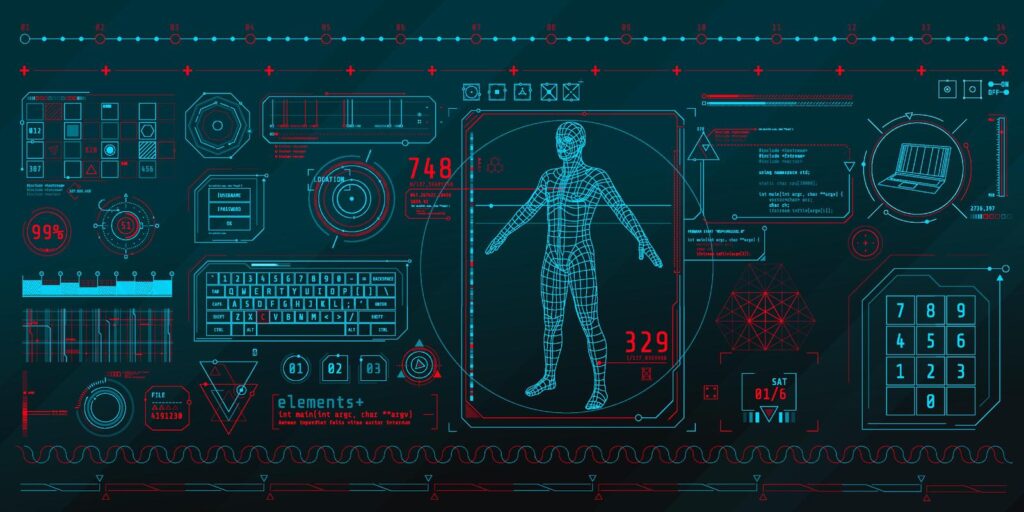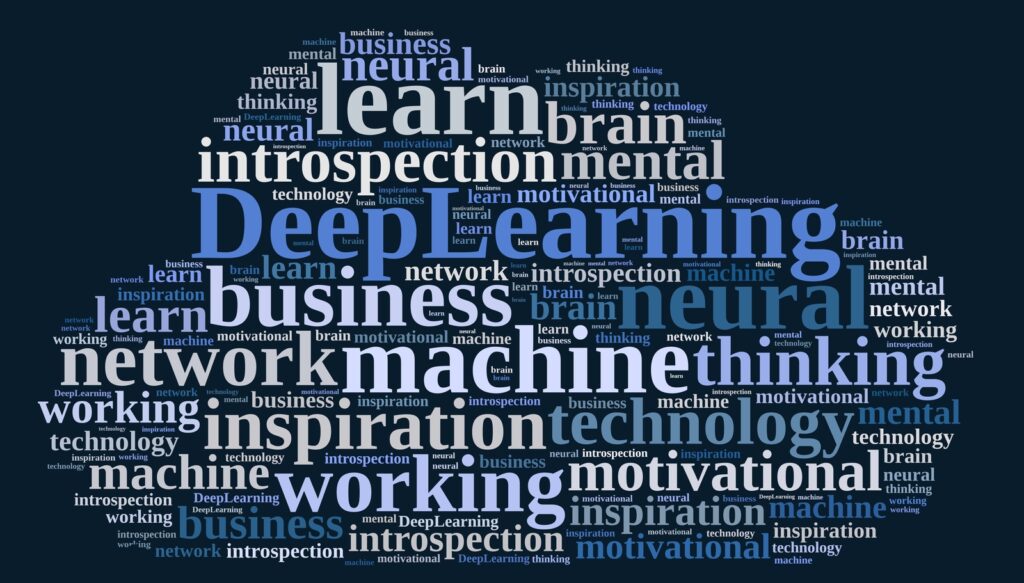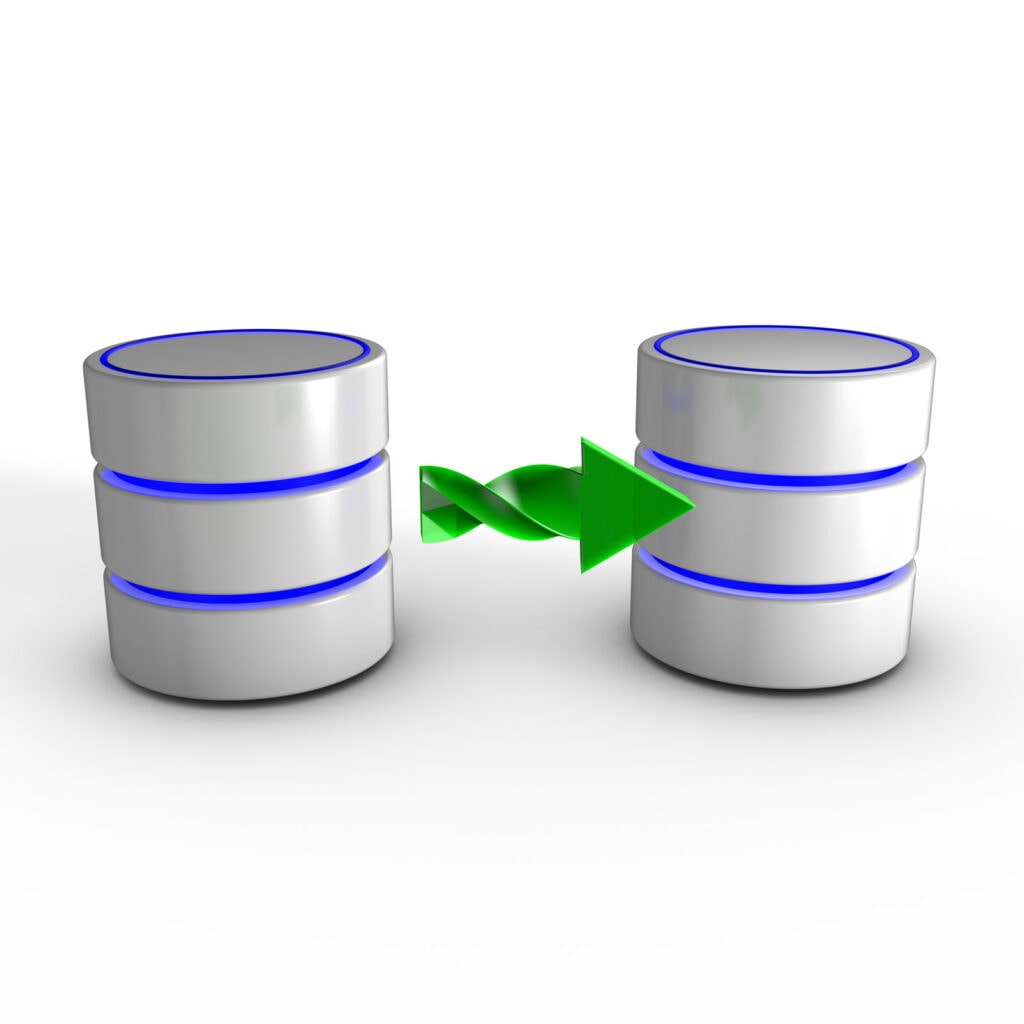

37 Research Topics In Data Science To Stay On Top Of
- February 22, 2024
As a data scientist, staying on top of the latest research in your field is essential.
The data science landscape changes rapidly, and new techniques and tools are constantly being developed.
To keep up with the competition, you need to be aware of the latest trends and topics in data science research.
In this article, we will provide an overview of 37 hot research topics in data science.
We will discuss each topic in detail, including its significance and potential applications.
These topics could be an idea for a thesis or simply topics you can research independently.
Stay tuned – this is one blog post you don’t want to miss!
37 Research Topics in Data Science
1.) predictive modeling.
Predictive modeling is a significant portion of data science and a topic you must be aware of.
Simply put, it is the process of using historical data to build models that can predict future outcomes.
Predictive modeling has many applications, from marketing and sales to financial forecasting and risk management.
As businesses increasingly rely on data to make decisions, predictive modeling is becoming more and more important.
While it can be complex, predictive modeling is a powerful tool that gives businesses a competitive advantage.

2.) Big Data Analytics
These days, it seems like everyone is talking about big data.
And with good reason – organizations of all sizes are sitting on mountains of data, and they’re increasingly turning to data scientists to help them make sense of it all.
But what exactly is big data? And what does it mean for data science?
Simply put, big data is a term used to describe datasets that are too large and complex for traditional data processing techniques.
Big data typically refers to datasets of a few terabytes or more.
But size isn’t the only defining characteristic – big data is also characterized by its high Velocity (the speed at which data is generated), Variety (the different types of data), and Volume (the amount of the information).
Given the enormity of big data, it’s not surprising that organizations are struggling to make sense of it all.
That’s where data science comes in.
Data scientists use various methods to wrangle big data, including distributed computing and other decentralized technologies.
With the help of data science, organizations are beginning to unlock the hidden value in their big data.
By harnessing the power of big data analytics, they can improve their decision-making, better understand their customers, and develop new products and services.
3.) Auto Machine Learning
Auto machine learning is a research topic in data science concerned with developing algorithms that can automatically learn from data without intervention.
This area of research is vital because it allows data scientists to automate the process of writing code for every dataset.
This allows us to focus on other tasks, such as model selection and validation.
Auto machine learning algorithms can learn from data in a hands-off way for the data scientist – while still providing incredible insights.
This makes them a valuable tool for data scientists who either don’t have the skills to do their own analysis or are struggling.

4.) Text Mining
Text mining is a research topic in data science that deals with text data extraction.
This area of research is important because it allows us to get as much information as possible from the vast amount of text data available today.
Text mining techniques can extract information from text data, such as keywords, sentiments, and relationships.
This information can be used for various purposes, such as model building and predictive analytics.
5.) Natural Language Processing
Natural language processing is a data science research topic that analyzes human language data.
This area of research is important because it allows us to understand and make sense of the vast amount of text data available today.
Natural language processing techniques can build predictive and interactive models from any language data.
Natural Language processing is pretty broad, and recent advances like GPT-3 have pushed this topic to the forefront.

6.) Recommender Systems
Recommender systems are an exciting topic in data science because they allow us to make better products, services, and content recommendations.
Businesses can better understand their customers and their needs by using recommender systems.
This, in turn, allows them to develop better products and services that meet the needs of their customers.
Recommender systems are also used to recommend content to users.
This can be done on an individual level or at a group level.
Think about Netflix, for example, always knowing what you want to watch!
Recommender systems are a valuable tool for businesses and users alike.
7.) Deep Learning
Deep learning is a research topic in data science that deals with artificial neural networks.
These networks are composed of multiple layers, and each layer is formed from various nodes.
Deep learning networks can learn from data similarly to how humans learn, irrespective of the data distribution.
This makes them a valuable tool for data scientists looking to build models that can learn from data independently.
The deep learning network has become very popular in recent years because of its ability to achieve state-of-the-art results on various tasks.
There seems to be a new SOTA deep learning algorithm research paper on https://arxiv.org/ every single day!

8.) Reinforcement Learning
Reinforcement learning is a research topic in data science that deals with algorithms that can learn on multiple levels from interactions with their environment.
This area of research is essential because it allows us to develop algorithms that can learn non-greedy approaches to decision-making, allowing businesses and companies to win in the long term compared to the short.
9.) Data Visualization
Data visualization is an excellent research topic in data science because it allows us to see our data in a way that is easy to understand.
Data visualization techniques can be used to create charts, graphs, and other visual representations of data.
This allows us to see the patterns and trends hidden in our data.
Data visualization is also used to communicate results to others.
This allows us to share our findings with others in a way that is easy to understand.
There are many ways to contribute to and learn about data visualization.
Some ways include attending conferences, reading papers, and contributing to open-source projects.
10.) Predictive Maintenance
Predictive maintenance is a hot topic in data science because it allows us to prevent failures before they happen.
This is done using data analytics to predict when a failure will occur.
This allows us to take corrective action before the failure actually happens.
While this sounds simple, avoiding false positives while keeping recall is challenging and an area wide open for advancement.
11.) Financial Analysis
Financial analysis is an older topic that has been around for a while but is still a great field where contributions can be felt.
Current researchers are focused on analyzing macroeconomic data to make better financial decisions.
This is done by analyzing the data to identify trends and patterns.
Financial analysts can use this information to make informed decisions about where to invest their money.
Financial analysis is also used to predict future economic trends.
This allows businesses and individuals to prepare for potential financial hardships and enable companies to be cash-heavy during good economic conditions.
Overall, financial analysis is a valuable tool for anyone looking to make better financial decisions.

12.) Image Recognition
Image recognition is one of the hottest topics in data science because it allows us to identify objects in images.
This is done using artificial intelligence algorithms that can learn from data and understand what objects you’re looking for.
This allows us to build models that can accurately recognize objects in images and video.
This is a valuable tool for businesses and individuals who want to be able to identify objects in images.
Think about security, identification, routing, traffic, etc.
Image Recognition has gained a ton of momentum recently – for a good reason.
13.) Fraud Detection
Fraud detection is a great topic in data science because it allows us to identify fraudulent activity before it happens.
This is done by analyzing data to look for patterns and trends that may be associated with the fraud.
Once our machine learning model recognizes some of these patterns in real time, it immediately detects fraud.
This allows us to take corrective action before the fraud actually happens.
Fraud detection is a valuable tool for anyone who wants to protect themselves from potential fraudulent activity.
14.) Web Scraping
Web scraping is a controversial topic in data science because it allows us to collect data from the web, which is usually data you do not own.
This is done by extracting data from websites using scraping tools that are usually custom-programmed.
This allows us to collect data that would otherwise be inaccessible.
For obvious reasons, web scraping is a unique tool – giving you data your competitors would have no chance of getting.
I think there is an excellent opportunity to create new and innovative ways to make scraping accessible for everyone, not just those who understand Selenium and Beautiful Soup.
15.) Social Media Analysis
Social media analysis is not new; many people have already created exciting and innovative algorithms to study this.
However, it is still a great data science research topic because it allows us to understand how people interact on social media.
This is done by analyzing data from social media platforms to look for insights, bots, and recent societal trends.
Once we understand these practices, we can use this information to improve our marketing efforts.
For example, if we know that a particular demographic prefers a specific type of content, we can create more content that appeals to them.
Social media analysis is also used to understand how people interact with brands on social media.
This allows businesses to understand better what their customers want and need.
Overall, social media analysis is valuable for anyone who wants to improve their marketing efforts or understand how customers interact with brands.

16.) GPU Computing
GPU computing is a fun new research topic in data science because it allows us to process data much faster than traditional CPUs .
Due to how GPUs are made, they’re incredibly proficient at intense matrix operations, outperforming traditional CPUs by very high margins.
While the computation is fast, the coding is still tricky.
There is an excellent research opportunity to bring these innovations to non-traditional modules, allowing data science to take advantage of GPU computing outside of deep learning.
17.) Quantum Computing
Quantum computing is a new research topic in data science and physics because it allows us to process data much faster than traditional computers.
It also opens the door to new types of data.
There are just some problems that can’t be solved utilizing outside of the classical computer.
For example, if you wanted to understand how a single atom moved around, a classical computer couldn’t handle this problem.
You’ll need to utilize a quantum computer to handle quantum mechanics problems.
This may be the “hottest” research topic on the planet right now, with some of the top researchers in computer science and physics worldwide working on it.
You could be too.

18.) Genomics
Genomics may be the only research topic that can compete with quantum computing regarding the “number of top researchers working on it.”
Genomics is a fantastic intersection of data science because it allows us to understand how genes work.
This is done by sequencing the DNA of different organisms to look for insights into our and other species.
Once we understand these patterns, we can use this information to improve our understanding of diseases and create new and innovative treatments for them.
Genomics is also used to study the evolution of different species.
Genomics is the future and a field begging for new and exciting research professionals to take it to the next step.
19.) Location-based services
Location-based services are an old and time-tested research topic in data science.
Since GPS and 4g cell phone reception became a thing, we’ve been trying to stay informed about how humans interact with their environment.
This is done by analyzing data from GPS tracking devices, cell phone towers, and Wi-Fi routers to look for insights into how humans interact.
Once we understand these practices, we can use this information to improve our geotargeting efforts, improve maps, find faster routes, and improve cohesion throughout a community.
Location-based services are used to understand the user, something every business could always use a little bit more of.
While a seemingly “stale” field, location-based services have seen a revival period with self-driving cars.

20.) Smart City Applications
Smart city applications are all the rage in data science research right now.
By harnessing the power of data, cities can become more efficient and sustainable.
But what exactly are smart city applications?
In short, they are systems that use data to improve city infrastructure and services.
This can include anything from traffic management and energy use to waste management and public safety.
Data is collected from various sources, including sensors, cameras, and social media.
It is then analyzed to identify tendencies and habits.
This information can make predictions about future needs and optimize city resources.
As more and more cities strive to become “smart,” the demand for data scientists with expertise in smart city applications is only growing.
21.) Internet Of Things (IoT)
The Internet of Things, or IoT, is exciting and new data science and sustainability research topic.
IoT is a network of physical objects embedded with sensors and connected to the internet.
These objects can include everything from alarm clocks to refrigerators; they’re all connected to the internet.
That means that they can share data with computers.
And that’s where data science comes in.
Data scientists are using IoT data to learn everything from how people use energy to how traffic flows through a city.
They’re also using IoT data to predict when an appliance will break down or when a road will be congested.
Really, the possibilities are endless.
With such a wide-open field, it’s easy to see why IoT is being researched by some of the top professionals in the world.

22.) Cybersecurity
Cybersecurity is a relatively new research topic in data science and in general, but it’s already garnering a lot of attention from businesses and organizations.
After all, with the increasing number of cyber attacks in recent years, it’s clear that we need to find better ways to protect our data.
While most of cybersecurity focuses on infrastructure, data scientists can leverage historical events to find potential exploits to protect their companies.
Sometimes, looking at a problem from a different angle helps, and that’s what data science brings to cybersecurity.
Also, data science can help to develop new security technologies and protocols.
As a result, cybersecurity is a crucial data science research area and one that will only become more important in the years to come.
23.) Blockchain
Blockchain is an incredible new research topic in data science for several reasons.
First, it is a distributed database technology that enables secure, transparent, and tamper-proof transactions.
Did someone say transmitting data?
This makes it an ideal platform for tracking data and transactions in various industries.
Second, blockchain is powered by cryptography, which not only makes it highly secure – but is a familiar foe for data scientists.
Finally, blockchain is still in its early stages of development, so there is much room for research and innovation.
As a result, blockchain is a great new research topic in data science that vows to revolutionize how we store, transmit and manage data.

24.) Sustainability
Sustainability is a relatively new research topic in data science, but it is gaining traction quickly.
To keep up with this demand, The Wharton School of the University of Pennsylvania has started to offer an MBA in Sustainability .
This demand isn’t shocking, and some of the reasons include the following:
Sustainability is an important issue that is relevant to everyone.
Datasets on sustainability are constantly growing and changing, making it an exciting challenge for data scientists.
There hasn’t been a “set way” to approach sustainability from a data perspective, making it an excellent opportunity for interdisciplinary research.
As data science grows, sustainability will likely become an increasingly important research topic.
25.) Educational Data
Education has always been a great topic for research, and with the advent of big data, educational data has become an even richer source of information.
By studying educational data, researchers can gain insights into how students learn, what motivates them, and what barriers these students may face.
Besides, data science can be used to develop educational interventions tailored to individual students’ needs.
Imagine being the researcher that helps that high schooler pass mathematics; what an incredible feeling.
With the increasing availability of educational data, data science has enormous potential to improve the quality of education.

26.) Politics
As data science continues to evolve, so does the scope of its applications.
Originally used primarily for business intelligence and marketing, data science is now applied to various fields, including politics.
By analyzing large data sets, political scientists (data scientists with a cooler name) can gain valuable insights into voting patterns, campaign strategies, and more.
Further, data science can be used to forecast election results and understand the effects of political events on public opinion.
With the wealth of data available, there is no shortage of research opportunities in this field.
As data science evolves, so does our understanding of politics and its role in our world.
27.) Cloud Technologies
Cloud technologies are a great research topic.
It allows for the outsourcing and sharing of computer resources and applications all over the internet.
This lets organizations save money on hardware and maintenance costs while providing employees access to the latest and greatest software and applications.
I believe there is an argument that AWS could be the greatest and most technologically advanced business ever built (Yes, I know it’s only part of the company).
Besides, cloud technologies can help improve team members’ collaboration by allowing them to share files and work on projects together in real-time.
As more businesses adopt cloud technologies, data scientists must stay up-to-date on the latest trends in this area.
By researching cloud technologies, data scientists can help organizations to make the most of this new and exciting technology.

28.) Robotics
Robotics has recently become a household name, and it’s for a good reason.
First, robotics deals with controlling and planning physical systems, an inherently complex problem.
Second, robotics requires various sensors and actuators to interact with the world, making it an ideal application for machine learning techniques.
Finally, robotics is an interdisciplinary field that draws on various disciplines, such as computer science, mechanical engineering, and electrical engineering.
As a result, robotics is a rich source of research problems for data scientists.
29.) HealthCare
Healthcare is an industry that is ripe for data-driven innovation.
Hospitals, clinics, and health insurance companies generate a tremendous amount of data daily.
This data can be used to improve the quality of care and outcomes for patients.
This is perfect timing, as the healthcare industry is undergoing a significant shift towards value-based care, which means there is a greater need than ever for data-driven decision-making.
As a result, healthcare is an exciting new research topic for data scientists.
There are many different ways in which data can be used to improve healthcare, and there is a ton of room for newcomers to make discoveries.

30.) Remote Work
There’s no doubt that remote work is on the rise.
In today’s global economy, more and more businesses are allowing their employees to work from home or anywhere else they can get a stable internet connection.
But what does this mean for data science? Well, for one thing, it opens up a whole new field of research.
For example, how does remote work impact employee productivity?
What are the best ways to manage and collaborate on data science projects when team members are spread across the globe?
And what are the cybersecurity risks associated with working remotely?
These are just a few of the questions that data scientists will be able to answer with further research.
So if you’re looking for a new topic to sink your teeth into, remote work in data science is a great option.
31.) Data-Driven Journalism
Data-driven journalism is an exciting new field of research that combines the best of both worlds: the rigor of data science with the creativity of journalism.
By applying data analytics to large datasets, journalists can uncover stories that would otherwise be hidden.
And telling these stories compellingly can help people better understand the world around them.
Data-driven journalism is still in its infancy, but it has already had a major impact on how news is reported.
In the future, it will only become more important as data becomes increasingly fluid among journalists.
It is an exciting new topic and research field for data scientists to explore.


32.) Data Engineering
Data engineering is a staple in data science, focusing on efficiently managing data.
Data engineers are responsible for developing and maintaining the systems that collect, process, and store data.
In recent years, there has been an increasing demand for data engineers as the volume of data generated by businesses and organizations has grown exponentially.
Data engineers must be able to design and implement efficient data-processing pipelines and have the skills to optimize and troubleshoot existing systems.
If you are looking for a challenging research topic that would immediately impact you worldwide, then improving or innovating a new approach in data engineering would be a good start.
33.) Data Curation
Data curation has been a hot topic in the data science community for some time now.
Curating data involves organizing, managing, and preserving data so researchers can use it.
Data curation can help to ensure that data is accurate, reliable, and accessible.
It can also help to prevent research duplication and to facilitate the sharing of data between researchers.
Data curation is a vital part of data science. In recent years, there has been an increasing focus on data curation, as it has become clear that it is essential for ensuring data quality.
As a result, data curation is now a major research topic in data science.
There are numerous books and articles on the subject, and many universities offer courses on data curation.
Data curation is an integral part of data science and will only become more important in the future.

34.) Meta-Learning
Meta-learning is gaining a ton of steam in data science. It’s learning how to learn.
So, if you can learn how to learn, you can learn anything much faster.
Meta-learning is mainly used in deep learning, as applications outside of this are generally pretty hard.
In deep learning, many parameters need to be tuned for a good model, and there’s usually a lot of data.
You can save time and effort if you can automatically and quickly do this tuning.
In machine learning, meta-learning can improve models’ performance by sharing knowledge between different models.
For example, if you have a bunch of different models that all solve the same problem, then you can use meta-learning to share the knowledge between them to improve the cluster (groups) overall performance.
I don’t know how anyone looking for a research topic could stay away from this field; it’s what the Terminator warned us about!
35.) Data Warehousing
A data warehouse is a system used for data analysis and reporting.
It is a central data repository created by combining data from multiple sources.
Data warehouses are often used to store historical data, such as sales data, financial data, and customer data.
This data type can be used to create reports and perform statistical analysis.
Data warehouses also store data that the organization is not currently using.
This type of data can be used for future research projects.
Data warehousing is an incredible research topic in data science because it offers a variety of benefits.
Data warehouses help organizations to save time and money by reducing the need for manual data entry.
They also help to improve the accuracy of reports and provide a complete picture of the organization’s performance.
Data warehousing feels like one of the weakest parts of the Data Science Technology Stack; if you want a research topic that could have a monumental impact – data warehousing is an excellent place to look.

36.) Business Intelligence
Business intelligence aims to collect, process, and analyze data to help businesses make better decisions.
Business intelligence can improve marketing, sales, customer service, and operations.
It can also be used to identify new business opportunities and track competition.
BI is business and another tool in your company’s toolbox to continue dominating your area.
Data science is the perfect tool for business intelligence because it combines statistics, computer science, and machine learning.
Data scientists can use business intelligence to answer questions like, “What are our customers buying?” or “What are our competitors doing?” or “How can we increase sales?”
Business intelligence is a great way to improve your business’s bottom line and an excellent opportunity to dive deep into a well-respected research topic.
37.) Crowdsourcing
One of the newest areas of research in data science is crowdsourcing.
Crowdsourcing is a process of sourcing tasks or projects to a large group of people, typically via the internet.
This can be done for various purposes, such as gathering data, developing new algorithms, or even just for fun (think: online quizzes and surveys).
But what makes crowdsourcing so powerful is that it allows businesses and organizations to tap into a vast pool of talent and resources they wouldn’t otherwise have access to.
And with the rise of social media, it’s easier than ever to connect with potential crowdsource workers worldwide.
Imagine if you could effect that, finding innovative ways to improve how people work together.
That would have a huge effect.

Final Thoughts, Are These Research Topics In Data Science For You?
Thirty-seven different research topics in data science are a lot to take in, but we hope you found a research topic that interests you.
If not, don’t worry – there are plenty of other great topics to explore.
The important thing is to get started with your research and find ways to apply what you learn to real-world problems.
We wish you the best of luck as you begin your data science journey!
Other Data Science Articles
We love talking about data science; here are a couple of our favorite articles:
- Why Are You Interested In Data Science?
- Recent Posts
- Exploring the Shortage of Software Engineers: Strategies for Success [Must-Read Tips] - November 21, 2024
- How Female Software Engineers Dress [Master the Style Secrets] - November 21, 2024
- Demystifying ‘Is Software Testing Hard Reddit?’ [Unlock the Truth] - November 20, 2024
Mon - Sat 9:00am - 12:00am
- Get a quote
List of Best Research and Thesis Topic Ideas for Data Science in 2022
In an era driven by digital and technological transformation, businesses actively seek skilled and talented data science potentials capable of leveraging data insights to enhance business productivity and achieve organizational objectives. In keeping with an increasing demand for data science professionals, universities offer various data science and big data courses to prepare students for the tech industry. Research projects are a crucial part of these programs and a well- executed data science project can make your CV appear more robust and compelling. A broad range of data science topics exist that offer exciting possibilities for research but choosing data science research topics can be a real challenge for students . After all, a good research project relies first and foremost on data analytics research topics that draw upon both mono-disciplinary and multi-disciplinary research to explore endless possibilities for real –world applications.
As one of the top-most masters and PhD online dissertation writing services , we are geared to assist students in the entire research process right from the initial conception to the final execution to ensure that you have a truly fulfilling and enriching research experience. These resources are also helpful for those students who are taking online classes .
By taking advantage of our best digital marketing research topics in data science you can be assured of producing an innovative research project that will impress your research professors and make a huge difference in attracting the right employers.
Get an Immediate Response
Discuss your requirments with our writers
Get 3 Customize Research Topic within 24 Hours
Data science thesis topics.
We have compiled a list of data science research topics for students studying data science that can be utilized in data science projects in 2022. our team of professional data experts have brought together master or MBA thesis topics in data science that cater to core areas driving the field of data science and big data that will relieve all your research anxieties and provide a solid grounding for an interesting research projects . The article will feature data science thesis ideas that can be immensely beneficial for students as they cover a broad research agenda for future data science . These ideas have been drawn from the 8 v’s of big data namely Volume, Value, Veracity, Visualization, Variety, Velocity, Viscosity, and Virility that provide interesting and challenging research areas for prospective researches in their masters or PhD thesis . Overall, the general big data research topics can be divided into distinct categories to facilitate the research topic selection process.
- Security and privacy issues
- Cloud Computing Platforms for Big Data Adoption and Analytics
- Real-time data analytics for processing of image , video and text
- Modeling uncertainty
How “The Research Guardian” Can Help You A lot!
Our top thesis writing experts are available 24/7 to assist you the right university projects. Whether its critical literature reviews to complete your PhD. or Master Levels thesis.
DATA SCIENCE PHD RESEARCH TOPICS
The article will also guide students engaged in doctoral research by introducing them to an outstanding list of data science thesis topics that can lead to major real-time applications of big data analytics in your research projects.
- Intelligent traffic control ; Gathering and monitoring traffic information using CCTV images.
- Asymmetric protected storage methodology over multi-cloud service providers in Big data.
- Leveraging disseminated data over big data analytics environment.
- Internet of Things.
- Large-scale data system and anomaly detection.
What makes us a unique research service for your research needs?
We offer all –round and superb research services that have a distinguished track record in helping students secure their desired grades in research projects in big data analytics and hence pave the way for a promising career ahead. These are the features that set us apart in the market for research services that effectively deal with all significant issues in your research for.
- Plagiarism –free ; We strictly adhere to a non-plagiarism policy in all our research work to provide you with well-written, original content with low similarity index to maximize chances of acceptance of your research submissions.
- Publication; We don’t just suggest PhD data science research topics but our PhD consultancy services take your research to the next level by ensuring its publication in well-reputed journals. A PhD thesis is indispensable for a PhD degree and with our premier best PhD thesis services that tackle all aspects of research writing and cater to essential requirements of journals , we will bring you closer to your dream of being a PhD in the field of data analytics.
- Research ethics: Solid research ethics lie at the core of our services where we actively seek to protect the privacy and confidentiality of the technical and personal information of our valued customers.
- Research experience: We take pride in our world –class team of computing industry professionals equipped with the expertise and experience to assist in choosing data science research topics and subsequent phases in research including findings solutions, code development and final manuscript writing.
- Business ethics: We are driven by a business philosophy that‘s wholly committed to achieving total customer satisfaction by providing constant online and offline support and timely submissions so that you can keep track of the progress of your research.
Now, we’ll proceed to cover specific research problems encompassing both data analytics research topics and big data thesis topics that have applications across multiple domains.
Get Help from Expert Thesis Writers!
TheresearchGuardian.com providing expert thesis assistance for university students at any sort of level. Our thesis writing service has been serving students since 2011.
Multi-modal Transfer Learning for Cross-Modal Information Retrieval
Aim and objectives.
The research aims to examine and explore the use of CMR approach in bringing about a flexible retrieval experience by combining data across different modalities to ensure abundant multimedia data.
- Develop methods to enable learning across different modalities in shared cross modal spaces comprising texts and images as well as consider the limitations of existing cross –modal retrieval algorithms.
- Investigate the presence and effects of bias in cross modal transfer learning and suggesting strategies for bias detection and mitigation.
- Develop a tool with query expansion and relevance feedback capabilities to facilitate search and retrieval of multi-modal data.
- Investigate the methods of multi modal learning and elaborate on the importance of multi-modal deep learning to provide a comprehensive learning experience.
The Role of Machine Learning in Facilitating the Implication of the Scientific Computing and Software Engineering
- Evaluate how machine learning leads to improvements in computational APA reference generator tools and thus aids in the implementation of scientific computing
- Evaluating the effectiveness of machine learning in solving complex problems and improving the efficiency of scientific computing and software engineering processes.
- Assessing the potential benefits and challenges of using machine learning in these fields, including factors such as cost, accuracy, and scalability.
- Examining the ethical and social implications of using machine learning in scientific computing and software engineering, such as issues related to bias, transparency, and accountability.
Trustworthy AI
The research aims to explore the crucial role of data science in advancing scientific goals and solving problems as well as the implications involved in use of AI systems especially with respect to ethical concerns.
- Investigate the value of digital infrastructures available through open data in aiding sharing and inter linking of data for enhanced global collaborative research efforts
- Provide explanations of the outcomes of a machine learning model for a meaningful interpretation to build trust among users about the reliability and authenticity of data
- Investigate how formal models can be used to verify and establish the efficacy of the results derived from probabilistic model.
- Review the concept of Trustworthy computing as a relevant framework for addressing the ethical concerns associated with AI systems.
The Implementation of Data Science and their impact on the management environment and sustainability
The aim of the research is to demonstrate how data science and analytics can be leveraged in achieving sustainable development.
- To examine the implementation of data science using data-driven decision-making tools
- To evaluate the impact of modern information technology on management environment and sustainability.
- To examine the use of data science in achieving more effective and efficient environment management
- Explore how data science and analytics can be used to achieve sustainability goals across three dimensions of economic, social and environmental.
Big data analytics in healthcare systems
The aim of the research is to examine the application of creating smart healthcare systems and how it can lead to more efficient, accessible and cost –effective health care.
- Identify the potential Areas or opportunities in big data to transform the healthcare system such as for diagnosis, treatment planning, or drug development.
- Assessing the potential benefits and challenges of using AI and deep learning in healthcare, including factors such as cost, efficiency, and accessibility
- Evaluating the effectiveness of AI and deep learning in improving patient outcomes, such as reducing morbidity and mortality rates, improving accuracy and speed of diagnoses, or reducing medical errors
- Examining the ethical and social implications of using AI and deep learning in healthcare, such as issues related to bias, privacy, and autonomy.
Large-Scale Data-Driven Financial Risk Assessment
The research aims to explore the possibility offered by big data in a consistent and real time assessment of financial risks.
- Investigate how the use of big data can help to identify and forecast risks that can harm a business.
- Categories the types of financial risks faced by companies.
- Describe the importance of financial risk management for companies in business terms.
- Train a machine learning model to classify transactions as fraudulent or genuine.
Scalable Architectures for Parallel Data Processing
Big data has exposed us to an ever –growing volume of data which cannot be handled through traditional data management and analysis systems. This has given rise to the use of scalable system architectures to efficiently process big data and exploit its true value. The research aims to analyses the current state of practice in scalable architectures and identify common patterns and techniques to design scalable architectures for parallel data processing.
- To design and implement a prototype scalable architecture for parallel data processing
- To evaluate the performance and scalability of the prototype architecture using benchmarks and real-world datasets
- To compare the prototype architecture with existing solutions and identify its strengths and weaknesses
- To evaluate the trade-offs and limitations of different scalable architectures for parallel data processing
- To provide recommendations for the use of the prototype architecture in different scenarios, such as batch processing, stream processing, and interactive querying
Robotic manipulation modelling
The aim of this research is to develop and validate a model-based control approach for robotic manipulation of small, precise objects.
- Develop a mathematical model of the robotic system that captures the dynamics of the manipulator and the grasped object.
- Design a control algorithm that uses the developed model to achieve stable and accurate grasping of the object.
- Test the proposed approach in simulation and validate the results through experiments with a physical robotic system.
- Evaluate the performance of the proposed approach in terms of stability, accuracy, and robustness to uncertainties and perturbations.
- Identify potential applications and areas for future work in the field of robotic manipulation for precision tasks.
Big data analytics and its impacts on marketing strategy
The aim of this research is to investigate the impact of big data analytics on marketing strategy and to identify best practices for leveraging this technology to inform decision-making.
- Review the literature on big data analytics and marketing strategy to identify key trends and challenges
- Conduct a case study analysis of companies that have successfully integrated big data analytics into their marketing strategies
- Identify the key factors that contribute to the effectiveness of big data analytics in marketing decision-making
- Develop a framework for integrating big data analytics into marketing strategy.
- Investigate the ethical implications of big data analytics in marketing and suggest best practices for responsible use of this technology.
Looking For Customize Thesis Topics?
Take a review of different varieties of thesis topics and samples from our website TheResearchGuardian.com on multiple subjects for every educational level.
Platforms for large scale data computing: big data analysis and acceptance
To investigate the performance and scalability of different large-scale data computing platforms.
- To compare the features and capabilities of different platforms and determine which is most suitable for a given use case.
- To identify best practices for using these platforms, including considerations for data management, security, and cost.
- To explore the potential for integrating these platforms with other technologies and tools for data analysis and visualization.
- To develop case studies or practical examples of how these platforms have been used to solve real-world data analysis challenges.
Distributed data clustering
Distributed data clustering can be a useful approach for analyzing and understanding complex datasets, as it allows for the identification of patterns and relationships that may not be immediately apparent.
To develop and evaluate new algorithms for distributed data clustering that is efficient and scalable.
- To compare the performance and accuracy of different distributed data clustering algorithms on a variety of datasets.
- To investigate the impact of different parameters and settings on the performance of distributed data clustering algorithms.
- To explore the potential for integrating distributed data clustering with other machine learning and data analysis techniques.
- To apply distributed data clustering to real-world problems and evaluate its effectiveness.
Analyzing and predicting urbanization patterns using GIS and data mining techniques".
The aim of this project is to use GIS and data mining techniques to analyze and predict urbanization patterns in a specific region.
- To collect and process relevant data on urbanization patterns, including population density, land use, and infrastructure development, using GIS tools.
- To apply data mining techniques, such as clustering and regression analysis, to identify trends and patterns in the data.
- To use the results of the data analysis to develop a predictive model for urbanization patterns in the region.
- To present the results of the analysis and the predictive model in a clear and visually appealing way, using GIS maps and other visualization techniques.
Use of big data and IOT in the media industry
Big data and the Internet of Things (IoT) are emerging technologies that are transforming the way that information is collected, analyzed, and disseminated in the media sector. The aim of the research is to understand how big data and IoT re used to dictate information flow in the media industry
- Identifying the key ways in which big data and IoT are being used in the media sector, such as for content creation, audience engagement, or advertising.
- Analyzing the benefits and challenges of using big data and IoT in the media industry, including factors such as cost, efficiency, and effectiveness.
- Examining the ethical and social implications of using big data and IoT in the media sector, including issues such as privacy, security, and bias.
- Determining the potential impact of big data and IoT on the media landscape and the role of traditional media in an increasingly digital world.
Exigency computer systems for meteorology and disaster prevention
The research aims to explore the role of exigency computer systems to detect weather and other hazards for disaster prevention and response
- Identifying the key components and features of exigency computer systems for meteorology and disaster prevention, such as data sources, analytics tools, and communication channels.
- Evaluating the effectiveness of exigency computer systems in providing accurate and timely information about weather and other hazards.
- Assessing the impact of exigency computer systems on the ability of decision makers to prepare for and respond to disasters.
- Examining the challenges and limitations of using exigency computer systems, such as the need for reliable data sources, the complexity of the systems, or the potential for human error.
Network security and cryptography
Overall, the goal of research is to improve our understanding of how to protect communication and information in the digital age, and to develop practical solutions for addressing the complex and evolving security challenges faced by individuals, organizations, and societies.
- Developing new algorithms and protocols for securing communication over networks, such as for data confidentiality, data integrity, and authentication
- Investigating the security of existing cryptographic primitives, such as encryption and hashing algorithms, and identifying vulnerabilities that could be exploited by attackers.
- Evaluating the effectiveness of different network security technologies and protocols, such as firewalls, intrusion detection systems, and virtual private networks (VPNs), in protecting against different types of attacks.
- Exploring the use of cryptography in emerging areas, such as cloud computing, the Internet of Things (IoT), and blockchain, and identifying the unique security challenges and opportunities presented by these domains.
- Investigating the trade-offs between security and other factors, such as performance, usability, and cost, and developing strategies for balancing these conflicting priorities.
Meet Our Professionals Ranging From Renowned Universities
Related topics.
- Sports Management Research Topics
- Special Education Research Topics
- Software Engineering Research Topics
- Primary Education Research Topics
- Microbiology Research Topics
- Luxury Brand Research Topics
- Cyber Security Research Topics
- Commercial Law Research Topics
- Change Management Research Topics
- Artificial intelligence Research Topics
